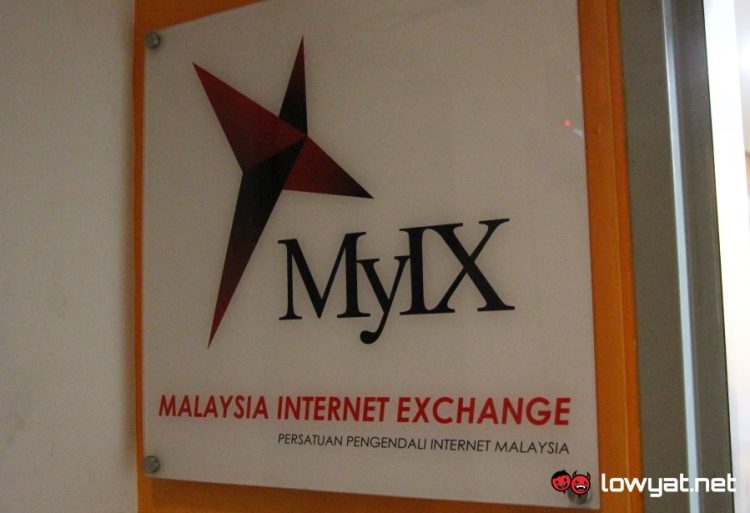It might have been existed for almost 11 years but Malaysia Internet Exchange (MyIX) might not be known to most end-users. Nevertheless, the industry-driven non-profit entity is actually responsible for making the Internet experience in Malaysia much smoother through a concept called peering – as per what we have learned at a recent media briefing.
Before the existence of MyIX, users’ data packet must travel through international Internet traffic before the subsequent packet is routed back to them. This situation is rather inevitable even when they are browsing sites that are hosted in Malaysia since local Internet Service Providers (ISPs) were not connected to each other at that time and all of them have their own international gateway.
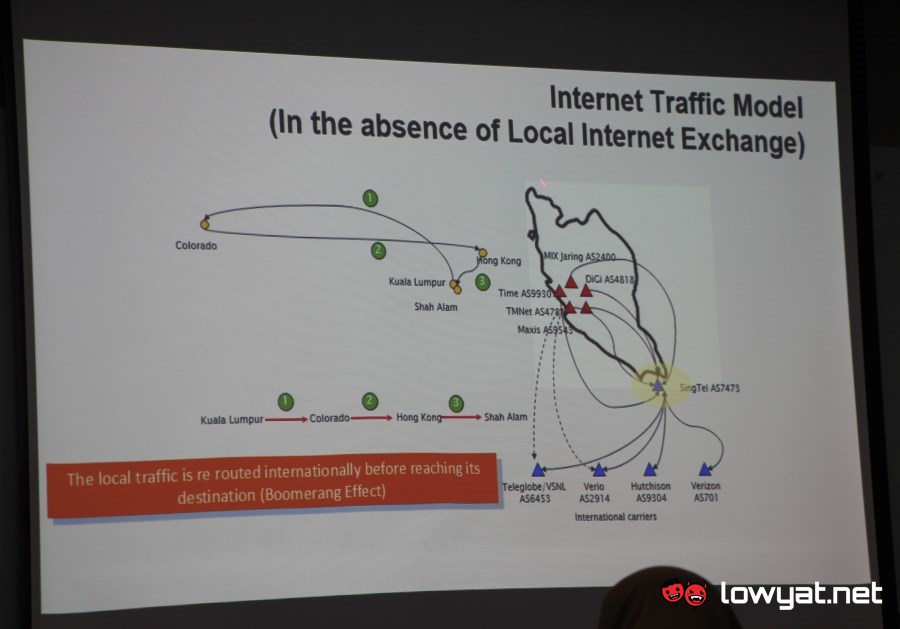
In general, this resulted in slower response time which also affect users’ Internet experience. At the same time, local ISPs would have to bear multiple costs for connecting to international traffic which might ended up affecting the pricing that they charged to users as well.
With the establishment of MyIX in 2006 which is modelled after established Internet Exchanges out there such as London Internet Exchange and Amsterdam Internet Exchange, this allows local ISPs to peer with each other in order to tackle the routing and costs issues. While the group do hope that the savings can be extended to end users as well but of course, that is up to the ISPs themselves.
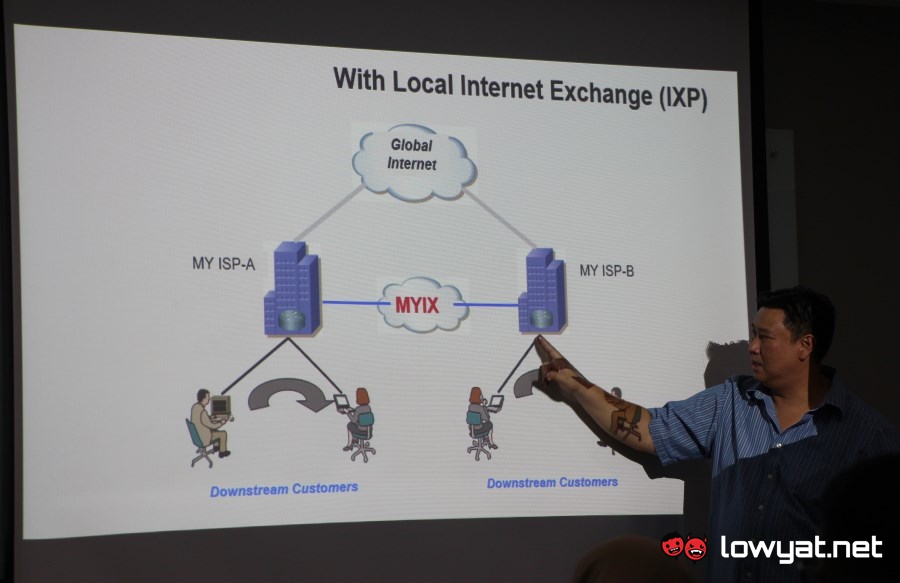
This is an example provided by local hosting company IPServerOne on how MyIX helps lower down its operational cost per month:
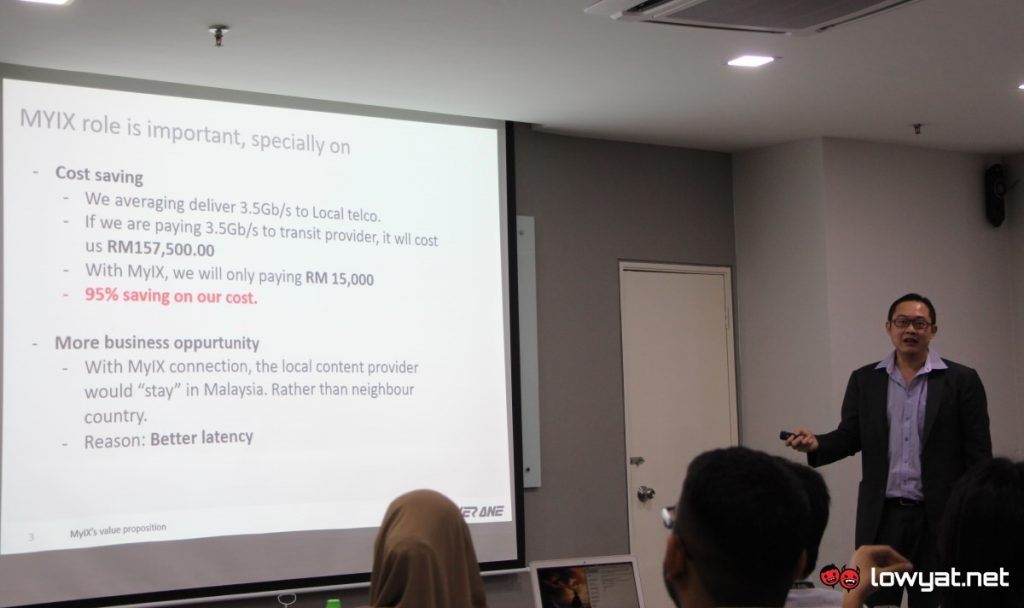
Aside from ISPs and mobile telcos, the clear advantage of peering has also attracted content providers to MyIX. Hence, that is why giants such as Amazon, Facebook, Google, and Microsoft are also part of the group’s 87 members which in a way showed the significance of MyIX’s role within Malaysia’s internet ecosystem. Being a neutral platform, MyIX also generally allows its members to peer without affecting their competitive edges.
Funded by membership and port fees, MyIX currently operates six nodes in several locations throughout Malaysia including Cyberjaya, Kuala Lumpur, Pulau Pinang, Johor Bharu, Kuching, and Kota Kinabalu. The group has also upgraded its central node capacity from 40Gbps to 100Gbps last October in order to cater Malaysia’s Internet growth until 2018 to 2019.
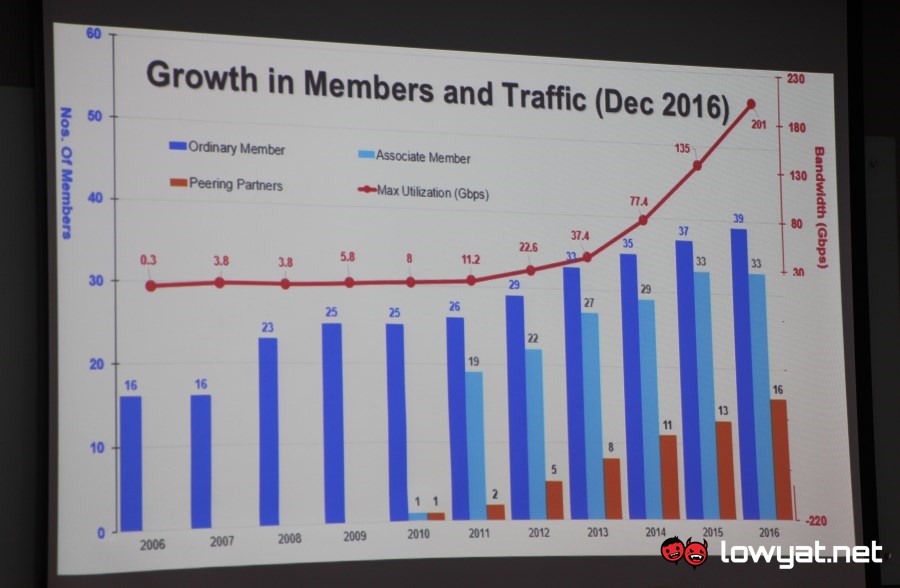
According to MyIX Chairman, Chiew Kok Hin, the group will continue to establish itself as a platform for interconnectivity as well as working to attract more content providers to utilize MyIX infrastructure. He also pointed that MyIX will also continuously adapt to the changes within the Internet ecosystem and landscape whenever necessary.

